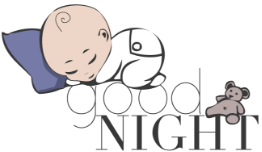By Jolandi Becker – MD of Good Night
The twelve month sleep regression is not one of the most common regressions, but when it hits it can be quite a tricky one to get through! It is made especially harder because at 12 months, your baby is starting to become a toddler, so they are not quite babies anymore but they are definitely also not full-on toddler/kids yet.
What is a sleep regression?
A sleep regression is a period where your baby/toddler sleeps worse than normal. The worse sleep might entail struggling to fall asleep or waking up more than usual at night. It might also mean being awake for extended periods of time at bedtime or throughout the night. How long it lasts depends on the age of your child.
Why do sleep regressions happen?
Sleep regressions are caused by development. Mental, physical or emotional development are factors that depend on the age of baby/toddler. Thus when your baby/toddler is growing (which is most of the time) this consequent development can disrupt their sleep for various reasons.
As mentioned, the 12 month sleep regression is the least common sleep regression and is mainly due to naps. Some toddlers might simply refuse to have 2 naps, and often parents might think it is time to move to 1 nap a day.
It can also be linked to physical development such as learning to walk, and mental development of learning to talk. They seem to want to try out this new skill for hours at night!
How long does 12-month-old regression last?
This can last between 2 and 6 weeks.
When does it happen?
Like any development milestone the regression does NOT happen exactly on the day your baby turns 1, but could happen anywhere between 11 and 13 months.
How long does it last?
This can last anywhere from a couple of days to couple of weeks.
How to survive the 12 month old sleep regression?
- Try not to move to 1 nap too quickly. Here it might be helpful to cap the first nap, so that it does not go on too late, to ensure that you still fit in the second nap comfortably. Also if you little one does skip the second nap, it is wise to make bedtime earlier. If your night time sleep is not affected, it is also not something to worry about too much as your little one is clearly coping with less sleep.
- As they enter toddlerhood, some extra comfort, undistracted one-on-one time as part of bedtime can be helpful for your child, but keep the routine between 18h00 and 19h00.
- Keep in mind that this is only a phase and NOW is not the time to start new habits such as lying with your toddler, or feeding them at night again. You know they can do it! Give them a chance to move through the phase.
- Keep it as dark as possible where your little one sleeps. Often when entering the toddler phase we incorrectly assume that little ones are afraid of the dark. At 12 months your toddler is not yet able to have this level of imagination that causes such fears.
- Phone your nearest consultant. Our consultants help you custom make a plan for your family, responsibly by incorporating all the building blocks. We also support you for 2 weeks to help you implement the plan.
Even though sleep regressions can cause sleep disruptions, the important thing to remember is that if you remain consistent it should only be a phase. If your little one slept well before regression, they should get back into it after this phase, and the regression should not be a reason to start negative associations.
#sleeptraining

